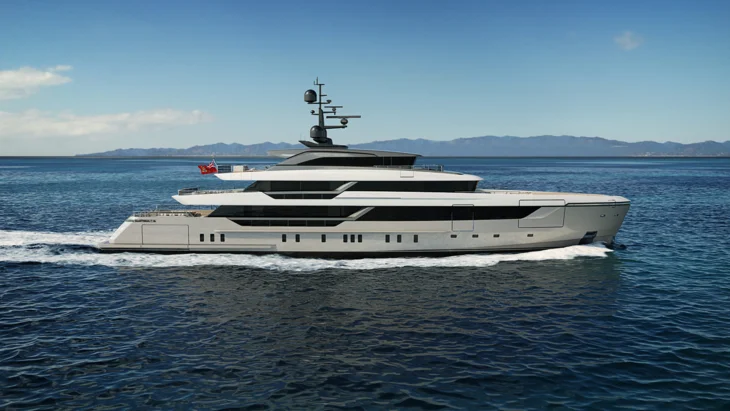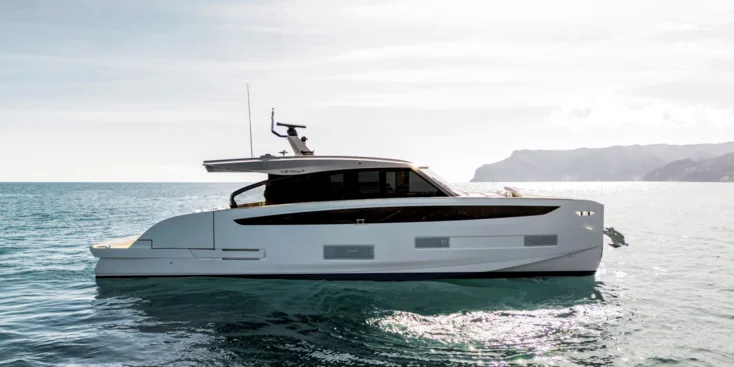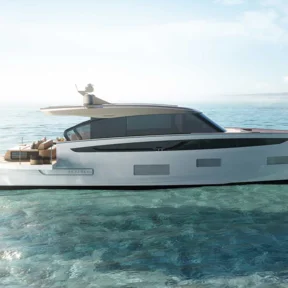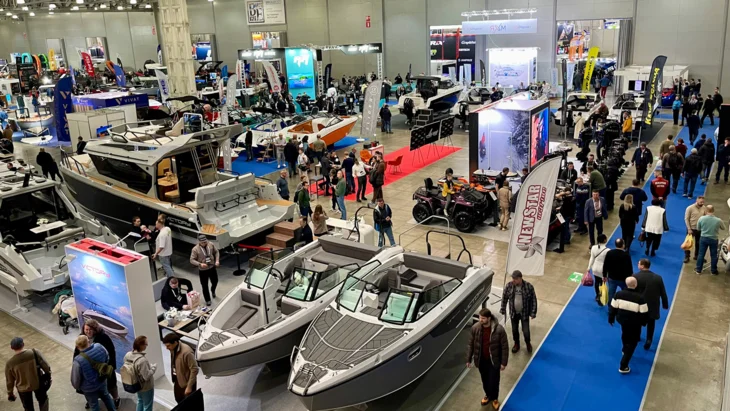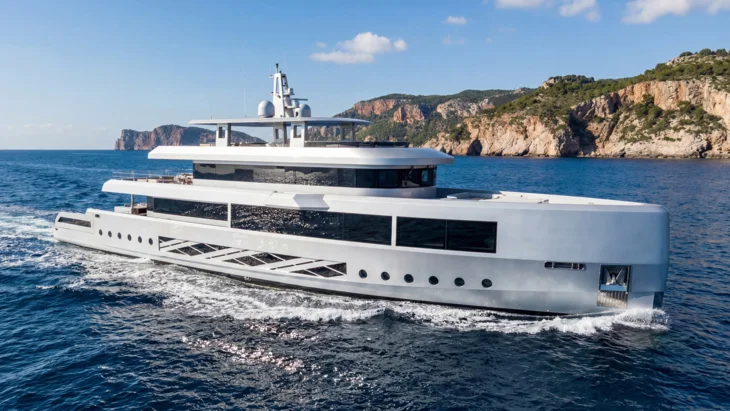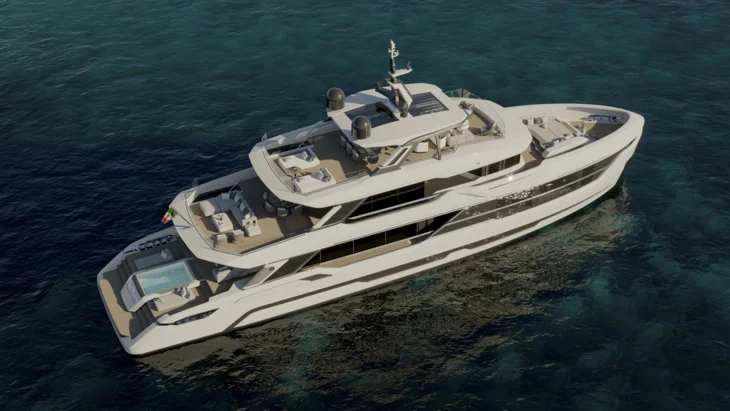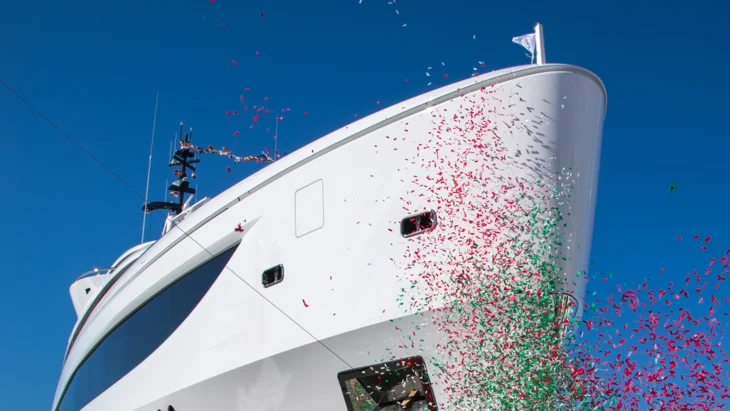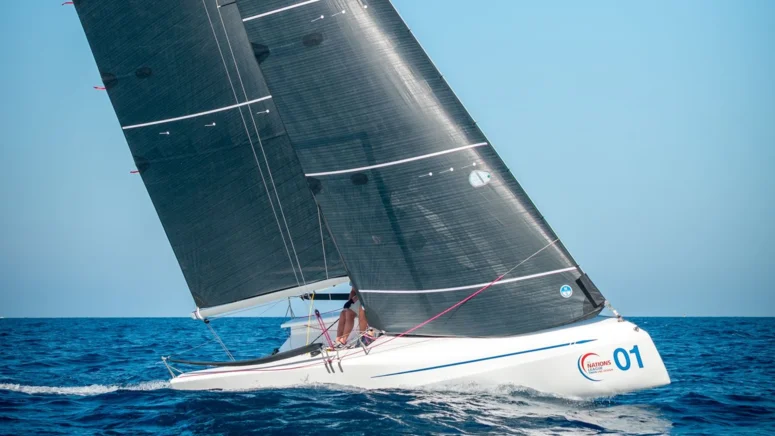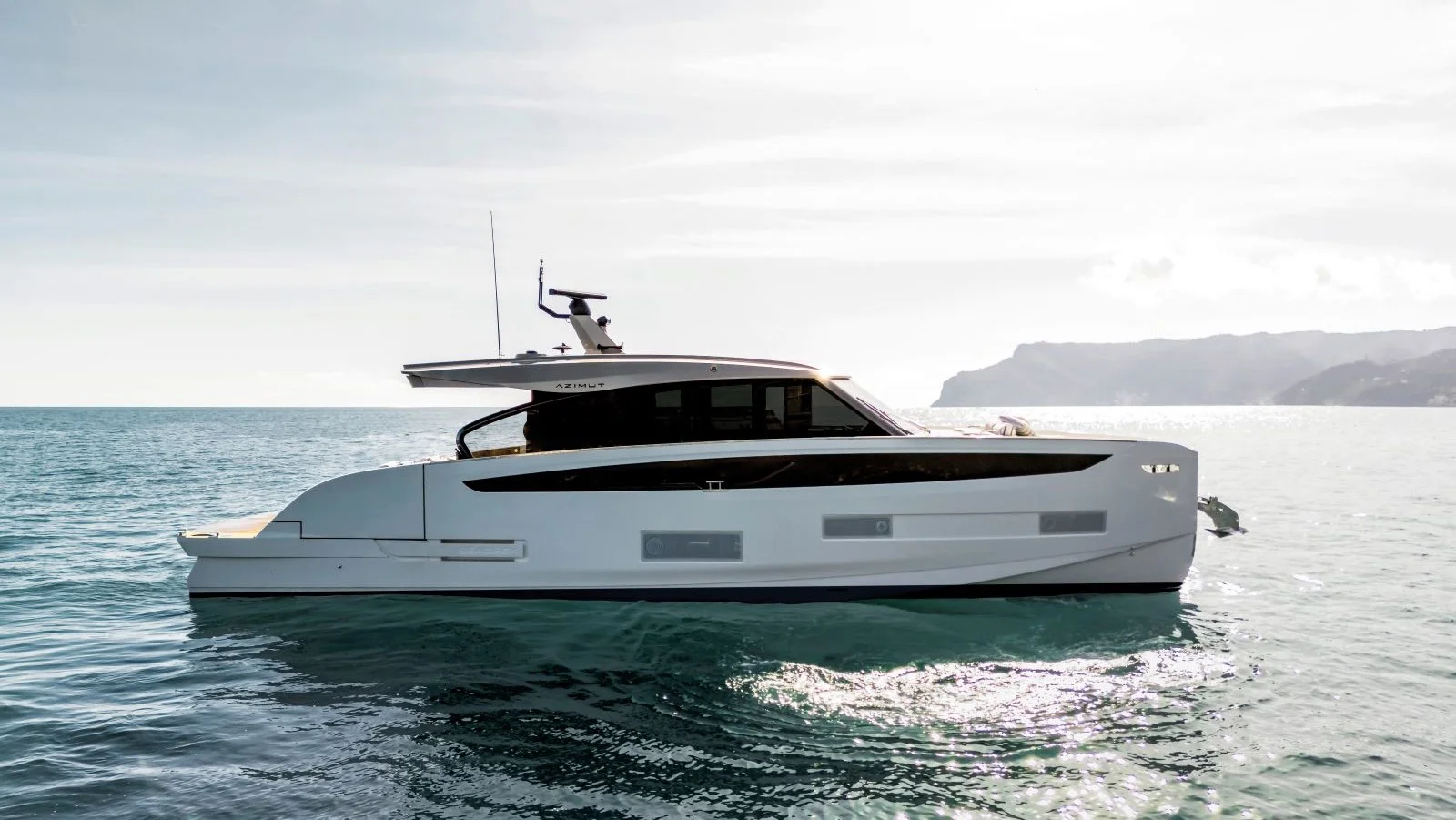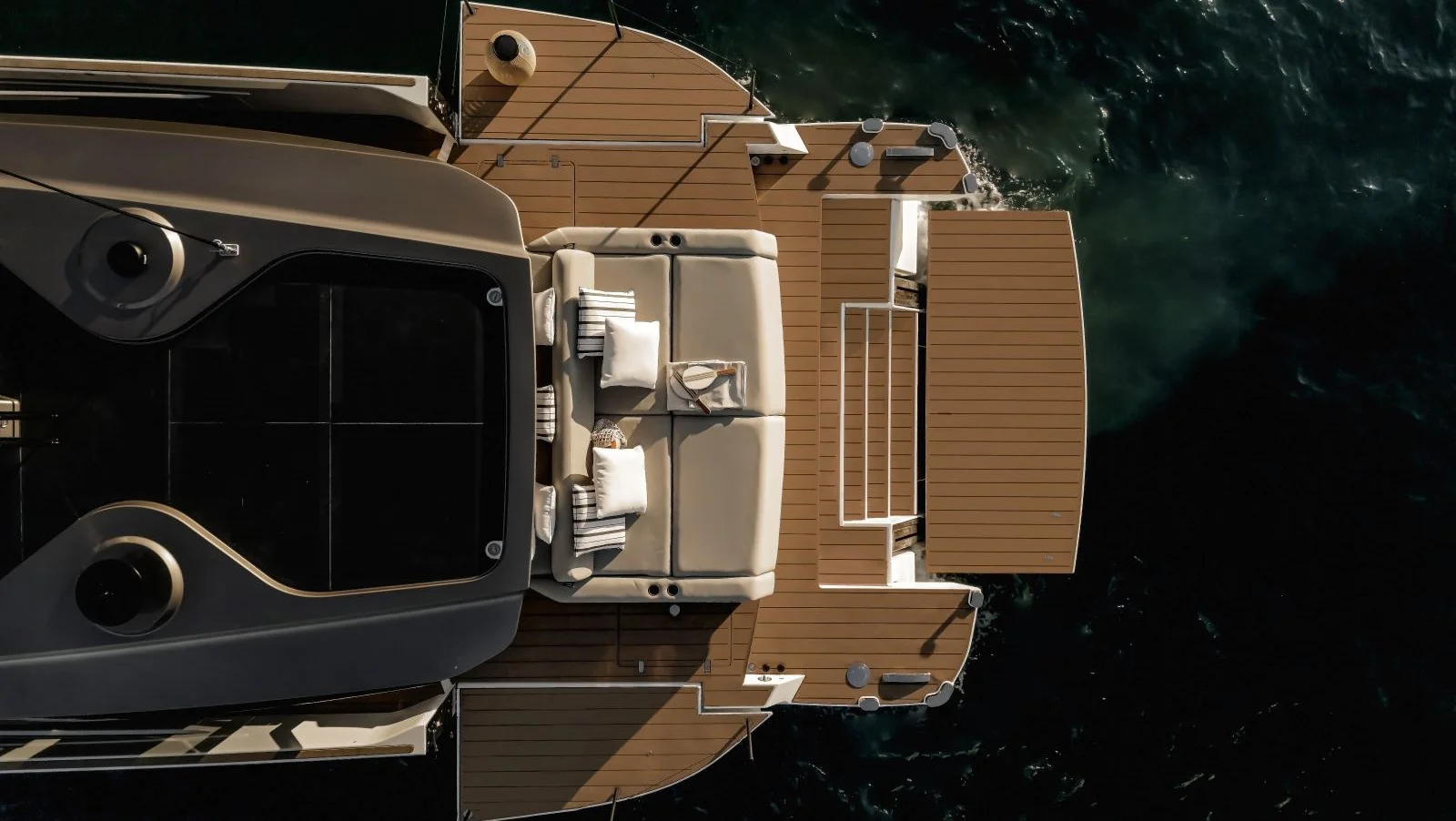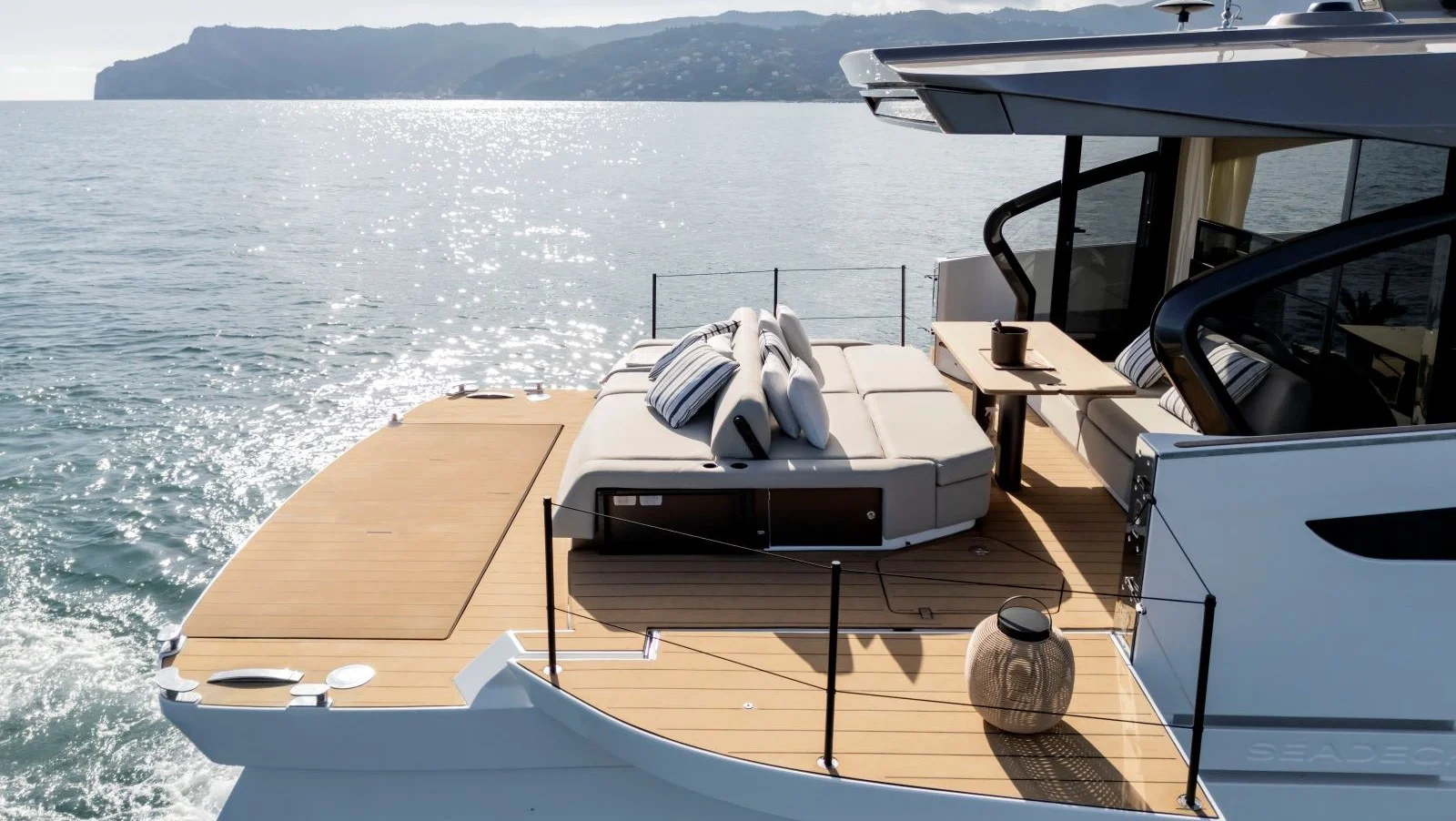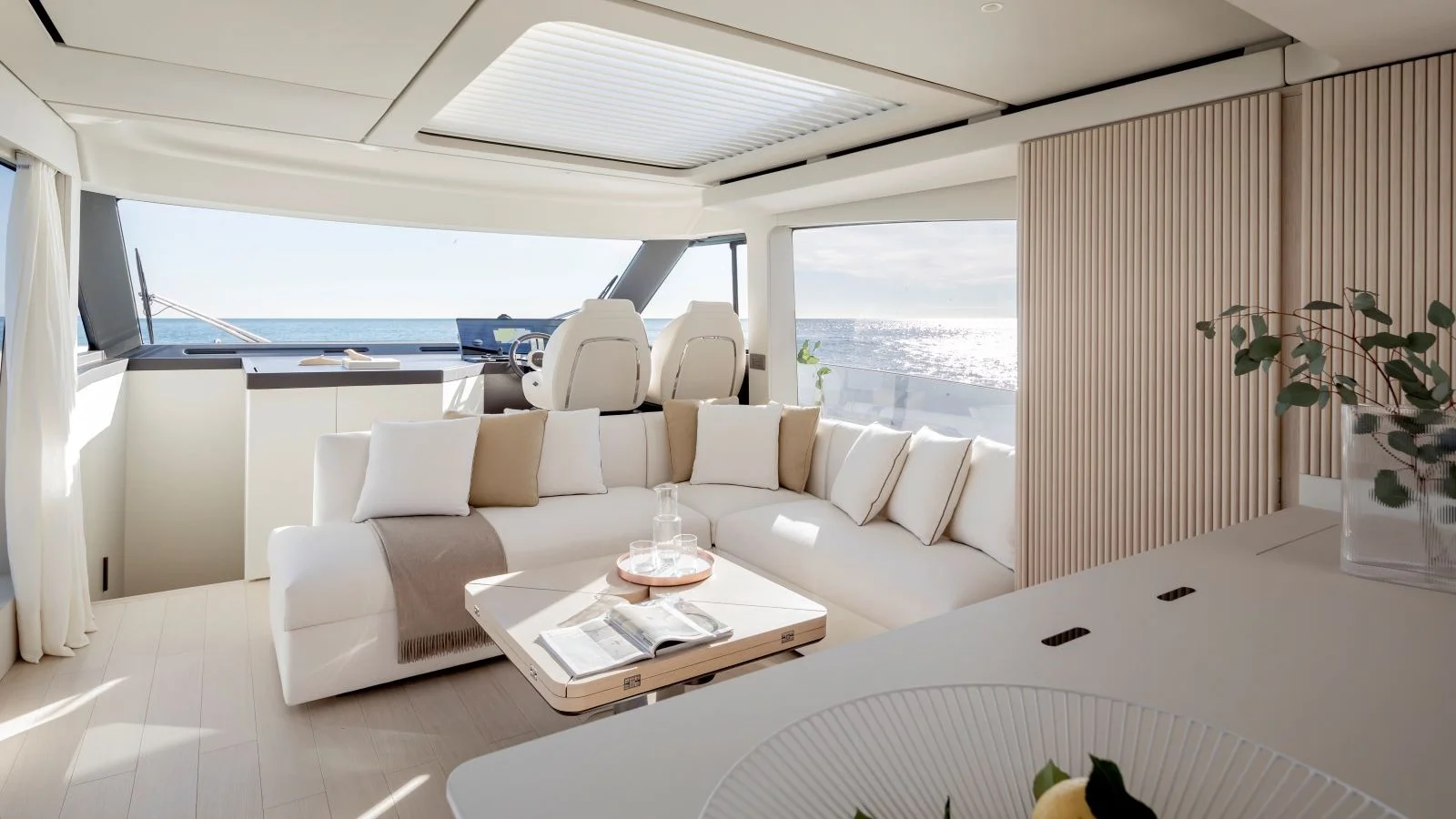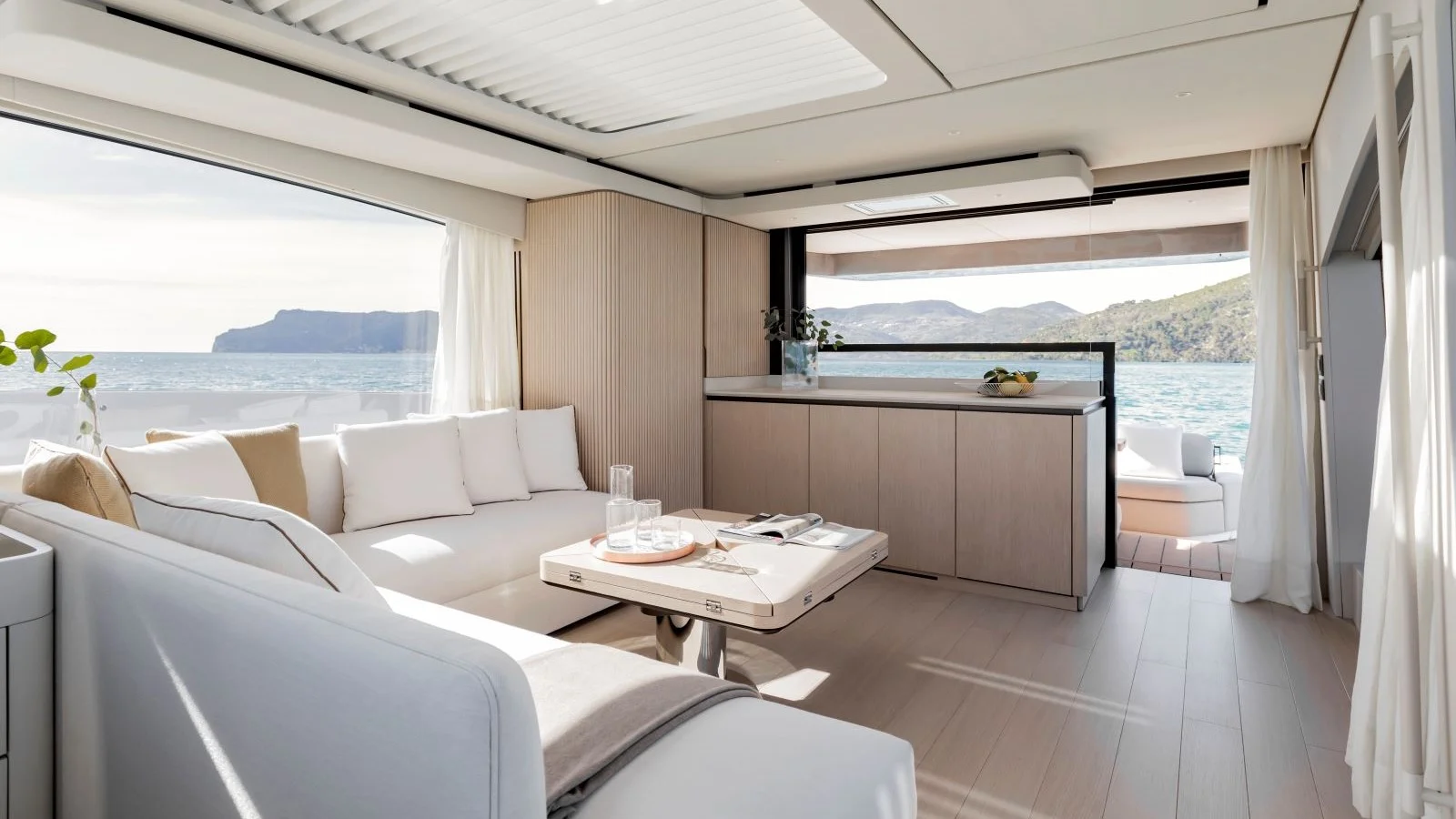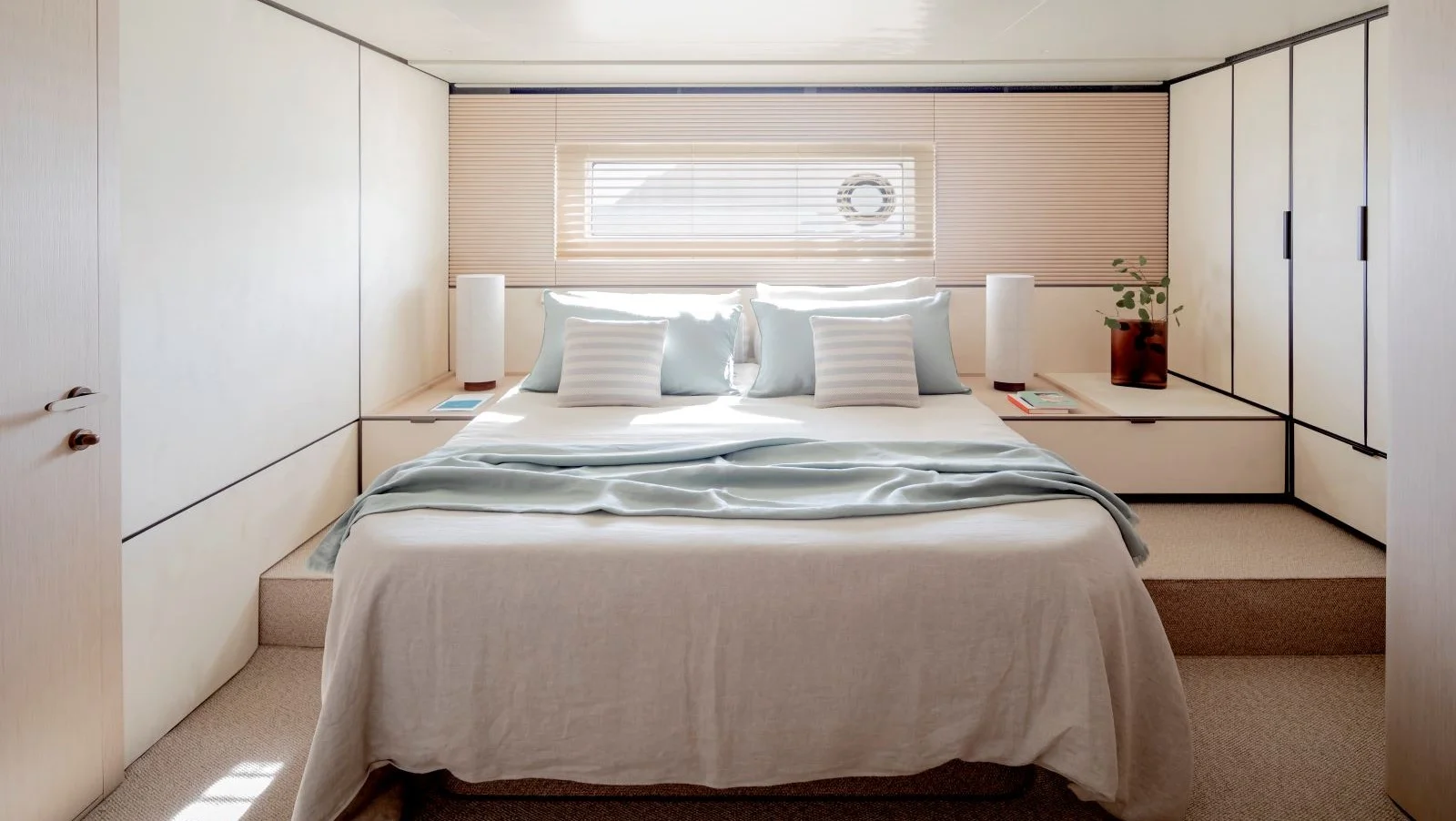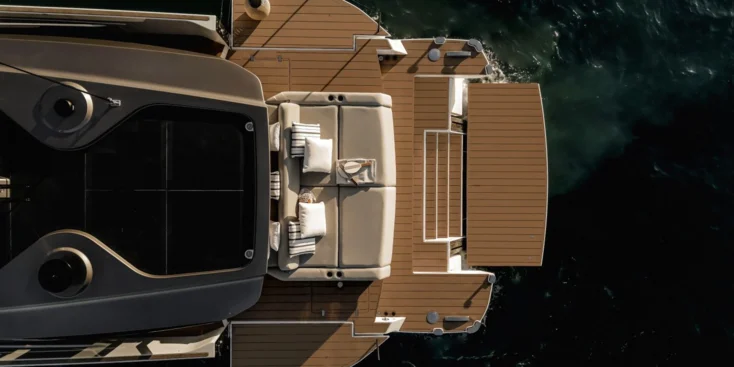
The 17.5-metre Seadeck 6 was officially presented on the water at the boat show running from May 29 to June 2 in Venice
It is a debut model of Azimut’s new eco-friendly Seadeck series called Low Emission Yachts. The shipyard has already announced the next additions to the range: the Seadeck 7 is to arrive in September 2024, and an even larger Seadeck 9. The concept of the Seadeck Series will enable reducing CO2 emissions by as much as 40% in one year of average use compared to traditional yachts of similar size.
To achieve this result the Azimut’s Seadeck Series will first of all lower fuel consumption by reducing the weight of the boat thanks to extensive use of carbon, used for as much as 40% of the construction, including the superstructure, most of the deck and the bathing platform.
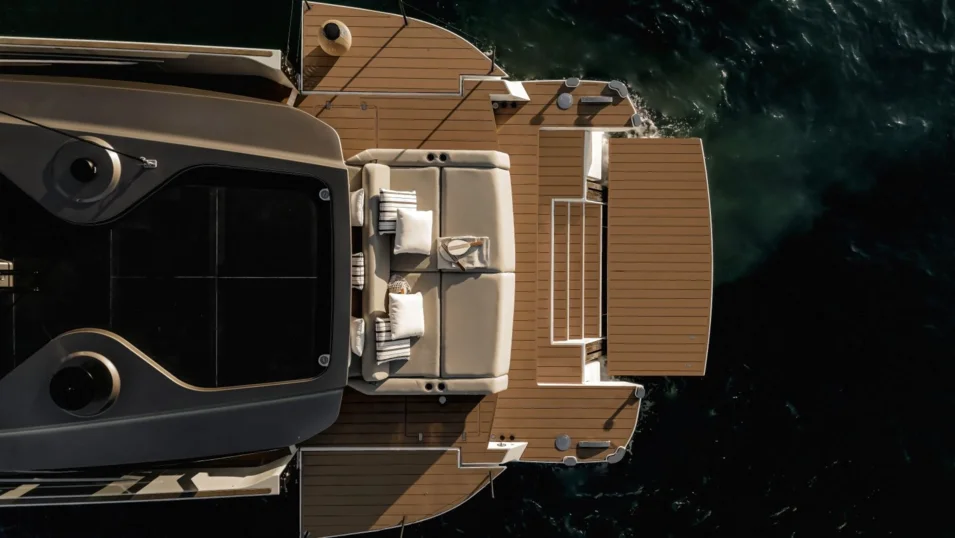
Secondly, the innovative hull shape ensures higher efficiency at the most frequent cruising speeds. Compared to conventional planing hulls, the Seadeck 6 is wider at the stern and more streamlined at the bow, allowing it to reach planing faster and to reduce drag at low speeds.
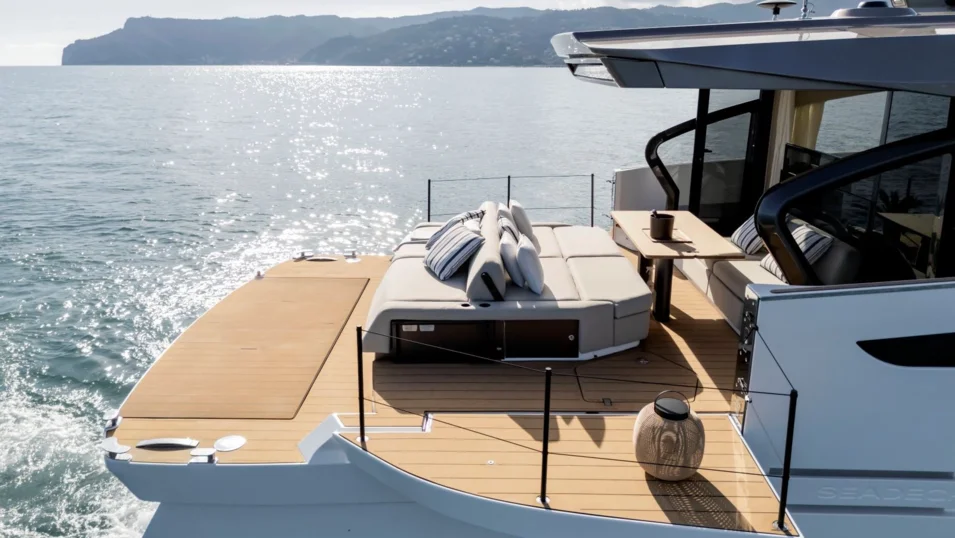
Thirdly, the Seadeck Series boats come with a hybrid propulsion system, which can work in different modes at anchor and underway. The system called Mild Hybrid Zero Emission Hotel Mode, is based on a 42-kWh lithium battery pack and an alternator connected to one of the three engines. Depending on the weather conditions, the zero-emission autonomy at anchor can reach up to 4 hours during the day and 8 hours at night. During navigation, the generator can be switched off for up to 8 hours with the stabilizer and air conditioning on.
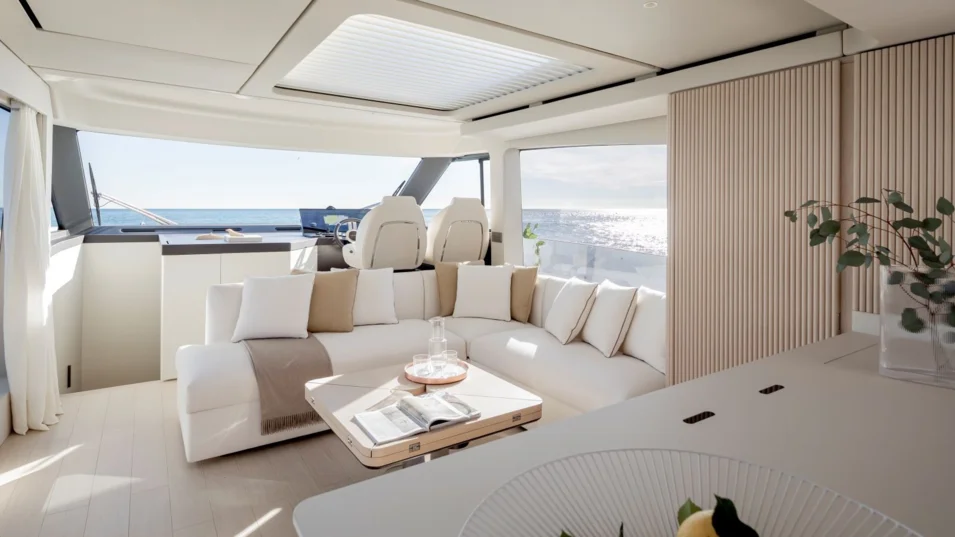
The Seadeck 6 interior features either natural or recycled materials, including cork instead of teak and the carpeting of silk-like moquette made of repurposed raw materials (R-PET). By the way, 30% of the Seadeck 6’s skeleton is also made of R-PET, totaling approximately 15 000 recovered plastic bottles.
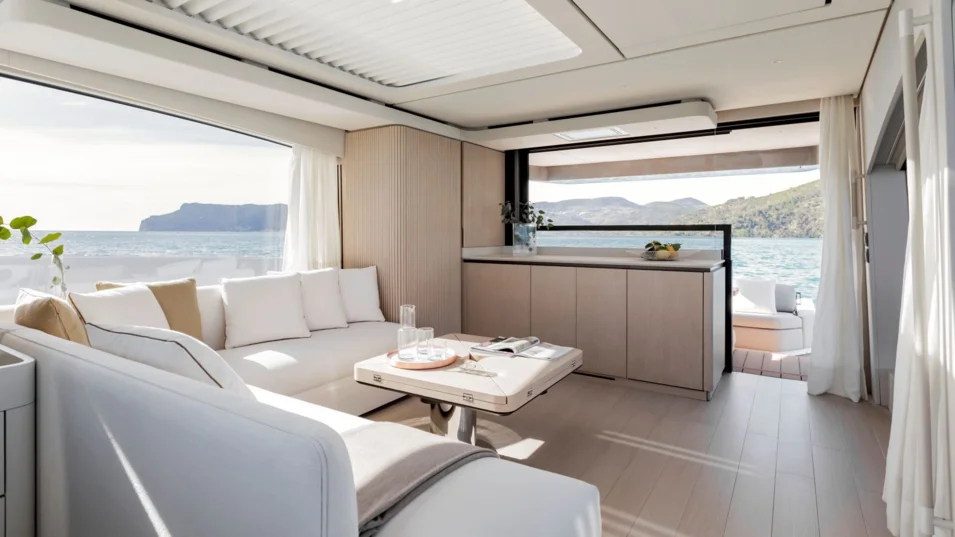
As for the layouts, the Seadeck 6 is designed to accommodate up to 6 people in three guest cabins and one crew member in a separate cabin aft.
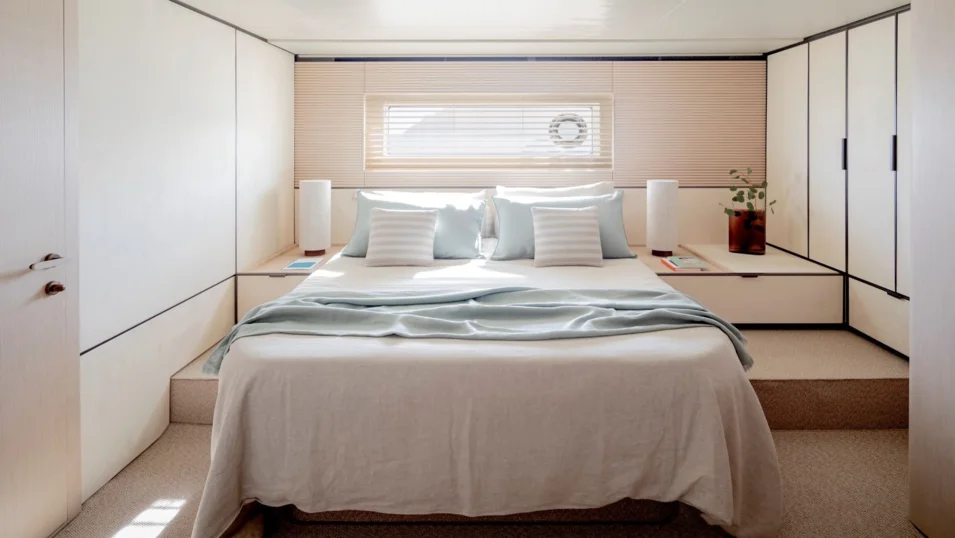
A sustainable yacht does not have to be slow: three Volvo IPS engines with an option of 380 or 480 hp each can reach a top speed of up to 33 knots and a cruising speed of 24 knots.
You have successfully subscribed to our newsletter
